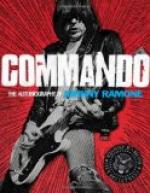FOREWORD
Could I have known that the war would last so long, I might from the beginning have taken notes. They would have brought back memories in a way pleasant to me now, and perhaps also to those who have asked me to write down my adventures.
Often it occurred to me to keep a diary, but I was obliged to give up the idea because my clothes were sometimes so thoroughly drenched that the letters in my pocket were not readable. Later on, when clothes were scarce and pockets past mending, I often made the unpleasant discovery that caused the fool, on his journey from the land of Kokanje, to cry to the King: ’We have ridden at such a breakneck pace, see, everything has slipped through this little hole!’ Now I am obliged to write down my adventures without any notes, so dates, numbers, and names of places will occasionally be missing. It stands to reason that I—being an exile in a strange country, in the fort of ... in ..., cut off from the world outside and without any official reports—should simply limit myself to my own personal experience. And, lastly, I must apologize to my readers for so often speaking of myself and my friends; but that is inevitable in this tale.
I shall pass rapidly over the first part of my life on commando. If my memory plays me false—which is not very probable, as I still have a lively recollection of the events—I shall be grateful for correction.
July, 1901.
I
AT THE BOUNDARY—ENTRANCE INTO NATAL—DUNDEE—LADYSMITH
When that part of the Pretoria town commando to which my brother Frits and I belonged left for the Natal boundary on September 30, 1899, we were all very enthusiastic, as could be seen from the nice new suits, the new shining guns, and the sleek horses. Many ladies had come to the station to see us off, and we were proud of having the opportunity to fight for our country. Our departure seemed then to us a great occasion, we were inexperienced in war. We had not yet learnt that one could pass unscathed through many a fierce battle. We knew nothing of ‘retreating’ and we knew all about the enemy with whom we were to come in contact. We imagined that several sharp engagements would take place—that these would be decisive battles in which many of our men would be killed, and therefore the parting with relatives and friends was sad indeed.
Our Field-Cornet, Melt Marais, had told us that we had nothing to see to except provisions for a day or two, as Government would supply us with all necessaries at Zandspruit, where the commandos were to concentrate; so many of us took neither pots, pans, nor mugs.




